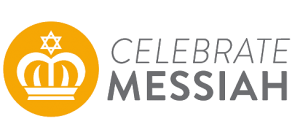I never really liked Passover when I was a kid. My parents held a seder (the traditional Passover meal) at our house every year with many close friends and family members, both Jews and Gentiles, everyone laughing and reading and eating – but not bringing any kids for my brother and me to play with. The whole thing lasted for what seemed like days.
One thing that made me feel better about our seders was when my mom told me stories about Passover when she was a little girl. For a time, my mom was brought up in an Orthodox home. Every Passover, the whole community would get together at the rabbi’s house for a seder that would last until after midnight. Long before the end, all the children would be fast asleep on the floor.
As a child, hearing these stories and participating in Passover, I was torn between the excitement of actually being able to sample the wine – that forbidden juice meant only for adults – and the boredom of having to sit through a seder that lasted all night and some of the morning.
However, as the years and seders went on and I actually came close to memorizing the Haggadah (booklet giving the order of the seder) we always used, I started to realize the importance of Passover. I devoted thought to the connections between the sacrifice of the Passover lamb and the sacrifice of Yeshua (Jesus), the Lamb of God. I realized that as God passed over the Israelite homes with blood on their doorposts (Ex. 12:12-13), the blood of Yeshua also saves all those who believe in Him from sin and eternal death (John 11:25-26).
Recently, the aspect of Passover that has impacted me most has been the great cost by which the people of Israel were set free from their slavery in Egypt. God brought ten crippling plagues against the people of Egypt, culminating in the death of every firstborn child, man and animal alike (Ex. 12:29-30). Then, after the Israelites left Egypt, they were pursued by the Egyptian army. The Lord drowned the entire army in the Red Sea (Ex. 14:28). After hundreds of years, the people of Israel were free from their bondage, but at a high cost.
Most believers would not rejoice in the destruction of life, but would praise God for His deliverance – so I too find myself somewhat conflicted by the dramatic events in the story of Passover. I see the mighty hand of God in those events, working on behalf of His people but also crushing those who would do His people harm. Israel walked out of Egypt free, but Israel’s road to freedom was paved with the bodies of the Egyptians.
Just as the story of Passover gives me cause to reflect on the cost of Israel’s freedom, I also think of the cost of my own freedom from sin and death, which was purchased with the blood of Yeshua. Like the redemption of Israel in Exodus, the redemption of those who put their faith in Yeshua is not something to take lightly. Yeshua’s death was awful and our freedom was not cheap.
I’ve also been thinking about the images of Yeshua we see in the Passover story. The blood of the lamb keeping death away from the Israelites has always reminded me of Yeshua’s blood freeing us from death. I’ve recently realized that just as God struck down the firstborn of Egypt as a sign of His power and His desire for Israel’s salvation, He later struck down His own Firstborn to give complete and eternal freedom to all who believe. Yeshua’s death was the picture of humility and submission, and His resurrection was the ultimate sign of God’s power and plan for salvation.
These realizations have caused me to see Passover, this year, differently than ever before. If God had simply set Israel free, but not destroyed the Egyptian army, “Dayenu!” – it would have been sufficient. If God had sent His Son without freeing us from sin and death, “Dayenu!” – it would have been sufficient. But this Passover, I’ve seen in a fresh way that God doesn’t simply do what is sufficient, He does what is perfect.
Contributed by Eryn Black


